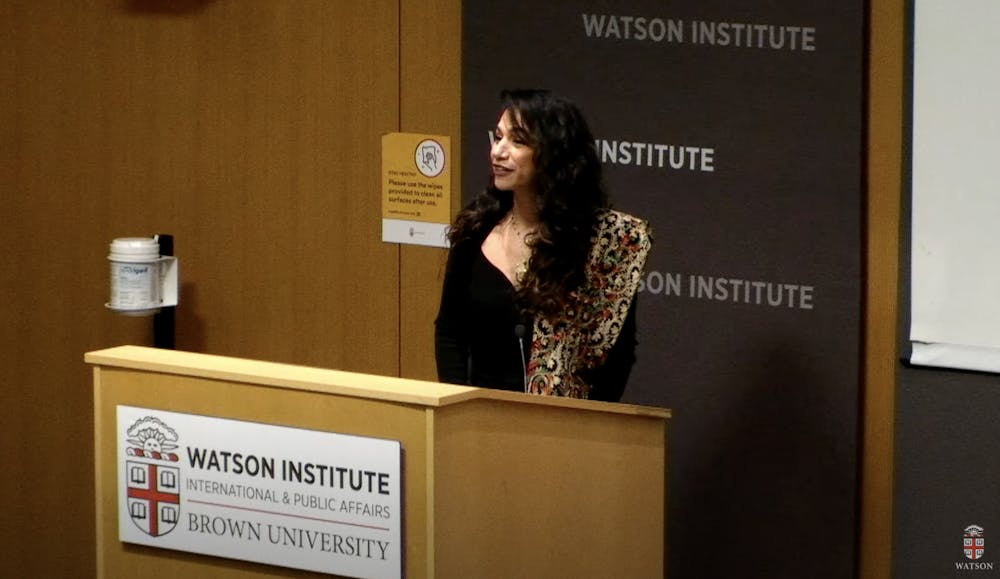The Watson Institute hosted a panel titled “Race, Racism and Palestine” on Tuesday night where leading scholars of race, law and political economy discussed Palestinian racial ideologies as well as anti-Blackness and legacies of slavery in the Middle East.
Director of Middle East Studies Nadje Al-Ali introduced the event, organized by Noura Erakat, spring 2022 Mahmoud Darwish visiting fellow in Palestinian studies. The event featured four panelists: Marc Lamont Hill, professor of media, cities and solutions at Temple University; John Reynolds, associate professor at the School of Law & Criminology at Maynooth University; Sherene Seikaly, associate professor of history at University of California, Santa Barbara; and Lana Tatour, assistant professor in global development at the University of New South Wales.
Erakat opened the discussion by noting how some people relate ongoing violence against Palestinians and Black people to the rise of "ethical solidarity" among Palestinian activists. While Middle East scholars and pro-Palestinian advocates must commit to ethical solidarity, she said, they must also recognize that “the Arabs and the Jews are as much a part of the Black slave trade — the creation of blackness as social death — as anyone else.”
Erakat also referenced a statement by the Middle East Studies Association that “recognizes the racism against indentured labor in the (Middle Eastern and North African) region as a core component of anti-Blackness and the struggle against it.”
Each of the speakers prepared answers prior to the event based on questions posed to them by Erakat in earlier discussions.
To address the questions, “What is the relationship between race and sovereignty? How does anti-Blackness travel across time and space? What lessons does Palestine offer on these questions?” Seikaly shared a series of family photos.
She outlined her family’s intergenerational experiences as Palestinian Christians, explaining their experiences with colonization under British rule and their involvement in the slave trade.
“The idea here that's so interesting is that these (Palestinian) men understand themselves as distinct from Blackness and Black Sudanese,” but also as distinct from the British in that they were “colonized in ways that parallel the people they believe they are superior to,” she said.
Tatour followed Seikaly by talking about the absence of race in Palestinian scholarship she encountered in her research.
“In the 1980s, and in the 90s onwards, ethnicity and ethnonationalism became the dominant frameworks,” she said. “The focus on ethnicity obscured race as an analytic.”
Tatour emphasized that “we don't talk enough about racial regimes within Palestinian society,” noting that she has focused her work on the Bedouin community, which she said is not only racialized within Palestine but also holds its own “deep racial structure.”
Reynolds then discussed the limitations of Palestine’s history of occupation in racial analysis, and “the value of the Palestinian intellectual tradition in filling some of the gaps in that analysis.”
While human rights organizations recently began to focus on Israeli occupation in Palestine, Reynolds said, Palestinian thinkers “over the decades (have) given us a fuller historicized and contextualized understanding of Israeli apartheid.”
Hill closed out the event by discussing anti-Blackness among Black Middle Easterners and Ethiopians, drawing on his experiences doing fieldwork in an Afro-Palestinian community in Jerusalem.
“What does it mean to have a Black Lives Matter movement for Ethiopians who are both victims of anti-Blackness and white supremacy, but at the same time are part of a settler colonial project” opposed to the anti-imperialist BLM movement? Hill asked.
Caleb Lazar was the senior editor of data desk for The Brown Daily Herald's 133rd Editorial Board.





